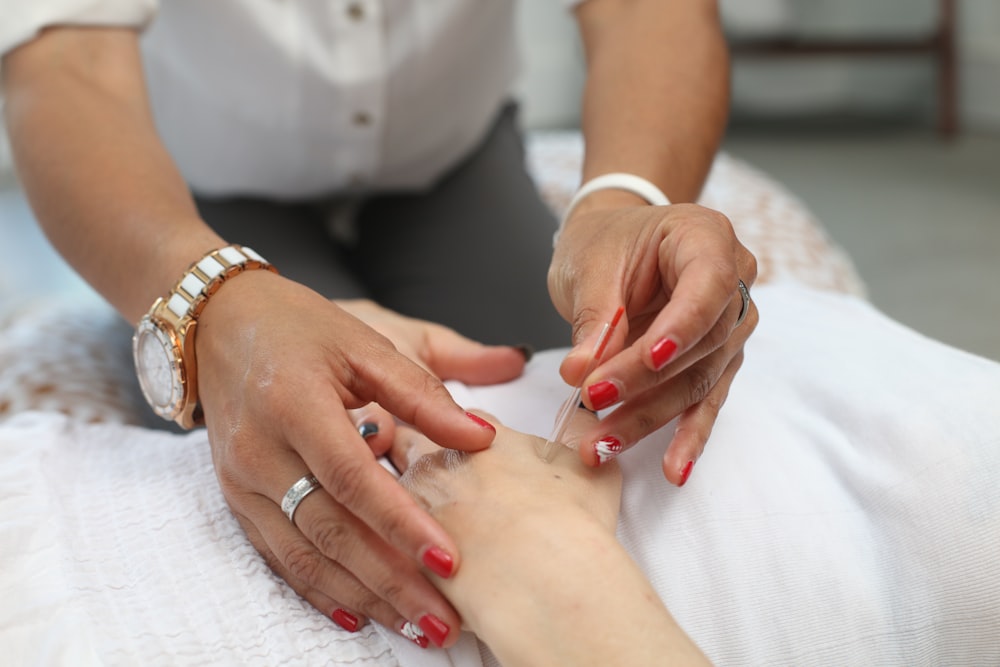“You have to be careful using ‘Eastern’ medicine as a Christian.”
Sigh.
I’ve heard variations of that statement throughout the years. And it still puzzles me.
But since I know the emotion behind the question is fear based on unexamined assumptions (for one, that you don’t have to be careful using Western medicine?), rather than react, I take the time to respond, sharing a perspective that most people I meet have not considered.
So here’s what I usually say:
Yes, it IS true every person needs to use discernment and wisdom when making decisions (not only those exclusive to medicine).
But let’s say, for example, that you are an Asian man or woman who has grown up in China and the predominant medical paradigm in your culture is Traditional Chinese Medicine. So you grew up with modalities like herbs, acupuncture, Tui na (a form of Chinese massage), cupping and more.
The practitioners test your pulse and check your tongue to diagnose what organ system may need support to help your body heal.
This is normal medicine to you. And it works.
Now let’s say you become a follower of Jesus.
And one day you develop a terrible headache. Or you have trouble with your gallbladder. Or you hurt your back lifting boxes.
As an Asian Christian, what kind of healthcare do you seek out now?
If you are a Christian in Asia, is it ok to still use acupuncture?
Of course it is!
In fact, it may surprise my fellow U.S. Christians that some Asian Christians are wary of our Western medical system because it is rooted in materialism—which elevates the physical over the spiritual.
In 2004, Kin-sang Cheng published an article* in the The Journal of Theologies and Cultures in Asia, a periodical that explores Asian approaches to theology.
In the article he quotes from a Chinese article published by a pastoral periodical in Hong Kong:
“On the one hand, it is said that as Christians, we ought to be cautious about some healing methods in the alternative healing movement but on the other, we should not take Western medicine based on materialism as the only orthodox [sic] and should not give up other healing methods.”
Because “other healing methods” rooted in other paradigms and cultures bring rich healing tools and perspectives that Western medicine lacks, and vice versa.
In one of my favorite non-fiction books, The Spirit Catches You and You Fall Down: A Hmong Child, Her American Doctors and the Collision of Two Cultures, the Hmong mother explains with the help of a translator that she doesn’t want to give the drugs to her young daughter because “it changes the child’s spirit.”
I won’t unpack the immense implications of that statement in this post.
I only share it here because one of the mindsets that flabbergasts me about my fellow Christians is how many have never chosen to examine their own assumptions about the Western, individualistic, materialistic culture.
The worldview of Westerners (and I was raised in this too!) in general seems to be that the Western allopathic model of healthcare is the only “legitimate” or “orthodox” medical system.
And I’ve also come across Christians who regard Western medicine as somehow the most “Christian” option, simply because it’s comfortable and familiar and the cultural paradigm in which they were raised.
But Western medicine is no more or no less Christian than any form of medicine based in Eastern cultures.
Western medicine has just had better PR at hiding its spiritual roots behind an intellectual spirit.
Many believers and non-believers alike make the mistake of confusing “Western” as “spiritually neutral” and the only “scientific” paradigm.
For all its innovations and life-saving measures (for which I am grateful), Western medicine, in my view, is still in its know-it-all teenage years when compared to the “elders” in the healthcare systems of humanity, such as Ayurveda and Traditional Chinese Medicine (including acupuncture).
These time-proven modalities embrace a more holistic, whole-person, energetic or metaphysical approach that understands our spirit, soul and body cannot be dissected and fractured.
Not only is the foot bone connected to the knee bone and the thigh bone, but it’s also interconnected with your mind, your emotions and your spirit!
Many medical paradigms can be life-giving when at their best and operating in their proper contexts (Western medicine is excellent with acute emergencies. Holistic and Eastern medicine shine with chronic health issues and preventative/wellness care.)
So let’s be intellectually honest! And remember 3 things:
- All medical systems formed outside of the Garden of Eden. So none of them are perfect and ALL of them are in need of redemption.
- All medicine has spiritual roots, whether they are embraced or silenced.
- Therefore, ALL of our health choices and decisions require discernment.
Thanks for reading! I’d love to hear your thoughts in a comment below.
Sources:
Cheng, K. (2004). De-construction of new age movement and holistic health movement. The Journal of Theologies and Cultures in Asia, 3, 121–154.
Photo by Antonika Chanel on Unsplash


Thanks! Really good exhortation to not get locked into the mindset we were given by our culture.
Locking into a fixed mindset is something our culture is good at. Growth mindsets take work, but so rewarding! Thanks for reading and adding this, Josh! Well said.
I loved this! Your article is well written and thoughtful. Thank you
Teresa Miiler ND
(And born again Christian)